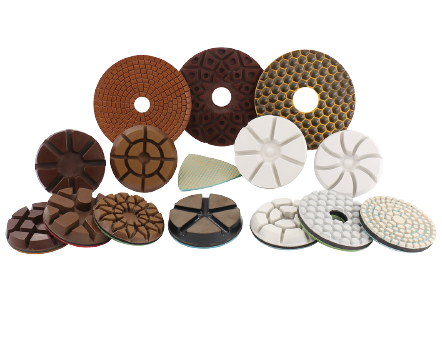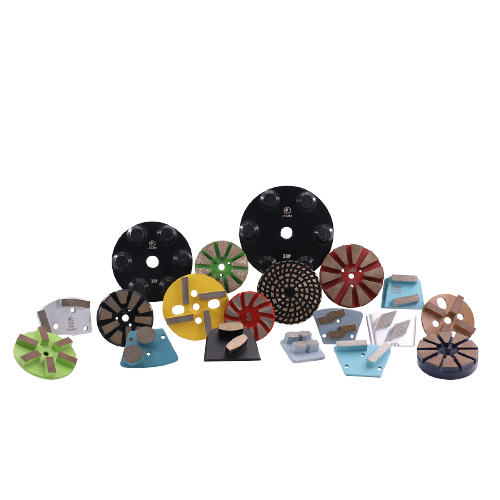About Grinding Wheel Bonds
Known for their elasticity, polishing effect, and superior performance, resin bonds pave the way for superior grinding processes and enhancements across industries. One of the main advantages of resin bonds is their excellent self-sharpening properties. Even after forming the abrasive tool, the resin bond maintains its sharp cutting edge, reducing the need for frequent dressing. This not only improves grinding efficiency but also ensures a smoother and more precise grinding surface finish. Resin bond grinding tools are popular for heavy grinding operations due to their high strength and resistance to shock loads. These wheels have minimal porosity and are designed for severe grinding, cutting, and dry grinding applications. High efficiency, widely used in occasions with low requirements on machining accuracy and surface quality.
Another advantage of resin bonds is their compatibility with coated abrasives. The abrasive slurries used in many operations often corrode the resin bond, compromising its strength and the bond's ability to effectively hold the abrasive. Using coated abrasives in resin bond grinding wheels can minimize this problem and improve the overall performance and durability of the tool. Known for their high-temperature strength, corrosion resistance, and wear resistance, polyimide resins are increasingly valued in the production of diamond abrasive tools. Diamond wheels of W10 grit size or finer require resin powder of the same grit size. If the particle size of the resin powder is large, it needs to be pulverized during the manufacturing process of the grinding wheel. The wide range of advantages offered by resin adhesives drives their application across various industries. From heavy-duty grinding operations where strength and resistance are required, to light-duty tasks where polishing and precision are critical, resin bonds have proven their mettle and versatility.
Experts and industry professionals agree that resin bonds are an essential part of revolutionizing the grinding process. Its elasticity, self-sharpening and clog resistance increase efficiency and produce superior results. As industries pursue higher operating standards and improved surface finishes, resin bonds have become an indispensable tool.

With its excellent performance, the metal bond is widely used in semi-fine grinding and fine grinding of various materials, including hard alloy workpieces, steel-based hard alloy workpieces, and some non-metallic materials. There are three main types of metal bonding: powder sintering, plating, and brazing. Among them, powder sintering is the most widely used method with excellent results and versatility. Among the powder-sintered types, bronze-based metal bonds are the most commonly used variant. However, depending on the requirements, cobalt-, nickel- and iron-based metal bonds also find their place in specific applications. When metal bonds are incorporated into abrasive tools, there are a number of advantages. Its exceptional hardness and stability make it ideal for demanding grinding tasks. Metal bond tools retain their shape and sharpness for longer, ensuring consistent performance and reducing the need for frequent tool changes.
The choice of the metal bond system varies according to the specific application. For example, diamond saw blades for cutting stones often have sintered nickel-based binders. These adhesives offer exceptional strength and durability for precise, efficient cutting under the most challenging conditions. For diamond grinding tools used for sharpening and grinding diamond tools, tungsten powder impregnated with low melting point alloys has proven to be very effective. This combination enhances the abrasive performance of the diamond tool, resulting in improved grinding performance and superior durability. Another notable application of metal bonds is in the field of geological drilling. Here, WC-Co foundation diamond bits have an excellent ability to penetrate the earth's surface for efficient drilling operations. The combination of diamond and metal bonds ensures excellent strength and wear resistance to meet the harsh geological drilling tasks. The versatility and effectiveness of metal bonds in abrasive tools have revolutionized industries ranging from construction and manufacturing to mining.

-
Online service
-
Official wechat account

-
QQ:40933769
-
E-mail:sales@z-lion.com
Online Message
Please feel free to give your inquiry in the form below. We will reply you in 24 hours.

